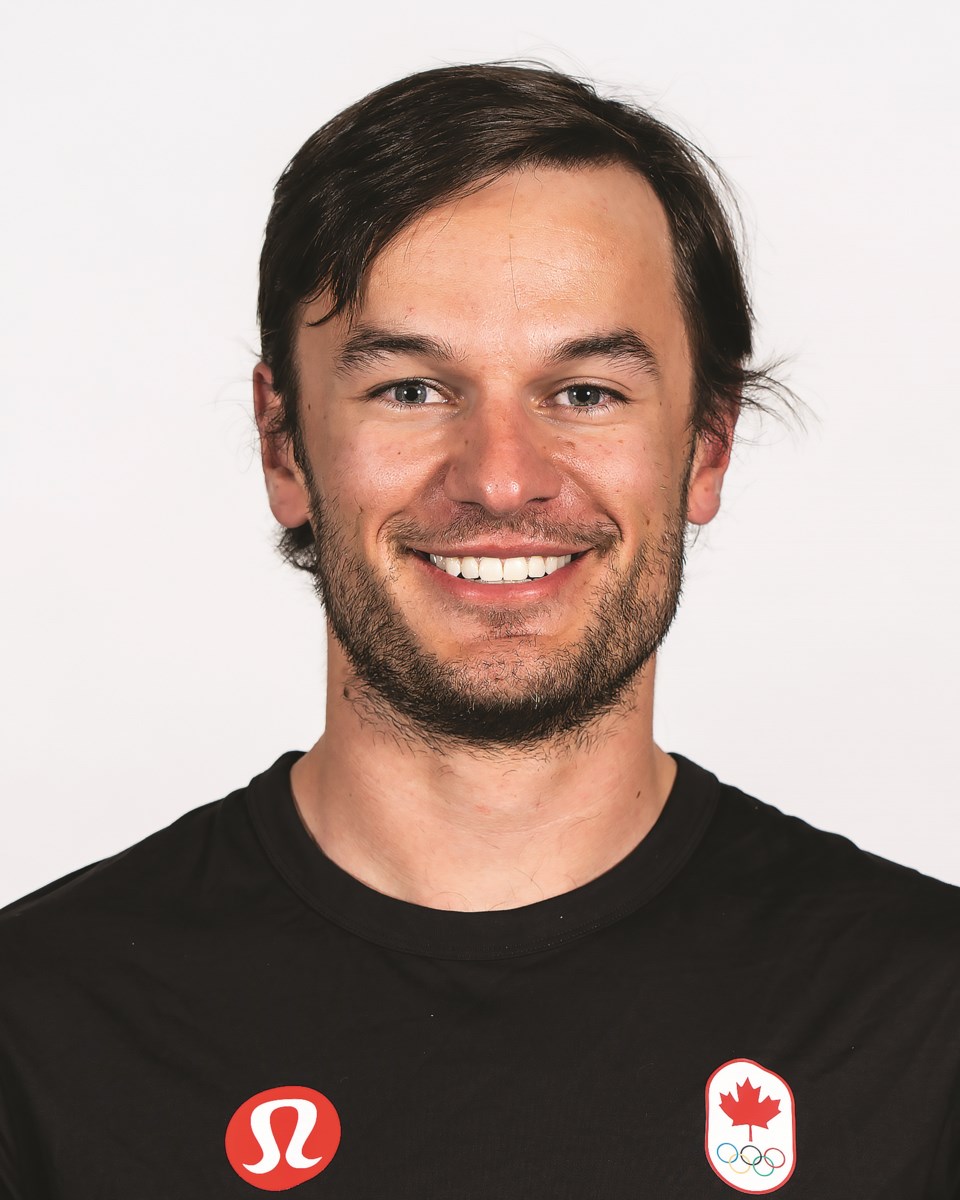Justin Snith, luge doubles, 2018 Olympic silver medallist
Being five-hundredths (0.05) of a second away from an Olympic medal has been the fire burning inside Justin Snith for the past eight years.
Hitting rocketing speeds at more than 145 km/h, the silver medallist luger, competing in men’s doubles, is on the verge of a fourth Olympic Games with teammate Tristan Walker of Cochrane.
“To be named to my fourth Olympic team kind of seems surreal to say that now,” said Snith, 30. “I remember prior to 2010, trying to make the national team was a fight and a real struggle. I feel very fortunate to be in the position I am today. It’s been quite the ride.”
Snith will be taking a break from the sport after Beijing, but is hungry as ever for more hardware.
Living in Canmore since fall 2020, some would argue a young Snith was too competitive growing up in Calgary, so the active kid pursued individual sports.
“If I messed up that was on me and I could own up to that,” said Snith, who’s perfectly aware of the irony of teaming with Walker for nearly 15 years.
The pairing happened by chance, Snith recalls, where the two good friends were “randomly” thrown together as a team in Park City, Utah, for a junior world cup. As it turned out, their styles gelled very well together and under pressure.
“I think we were both 16 at the time racing against 20 to 21 year olds,” Snith said. “We placed third and that kind of sealed our fate.”
Most of the top teams in the sport have been sledding together for a decade or more and the Canadian duo, who have a close brother-like relationship, are no exception.
As Snith discusses some of his hobbies over the phone, such as fly fishing, Walker chimes in the background.
“And you suck at golf,” he said.
It’s nothing out of the ordinary for the two pals.
“I’ll just tell him to hit a driver straight and I’ll listen to him,” Snith replies.
Doubles is a symbiotic relationship, where the job of one person is done by two. Only one person can’t see, and one person has far more contact on the sled than the other. Snith, who’s on the bottom, steers with his shoulders and feet if he needs to.
Walker, on top, is steering with his feet and handles and giving head signals to Snith before turning corners. If the team goes off line, they have to know quickly whose job it is to correct.
“There’s definitely nothing like that,” said Snith of the high-speed sport.
“That’s kind of the weird dichotomy that luge is. You have to be explosive and powerful at the start and then kind of relaxed and gelled on the way down to absorb all the bumps and stuff like that. I get excited to sled. I obviously get a huge adrenaline rush from it and you kind of go numb too after a while. It’s one of those things that nothing quite compares to it and it’s quite difficult to describe.”
Snith and Walker’s first Games was in Vancouver 2010 as fresh-faced 18-year-olds, racing as youngest athletes in doubles that year. The experience helped the young bucks as they challenged for medals in Sochi 2014, but barely missed the podium twice with fourth place finishes. Although, Snith and Walker eventually flew to the podium, winning silver in team relay in PyeongChang 2018 with Sam Edney and Alex Gough.
“When you’re in fourth place by five hundredths of a second at the Olympics, I don’t think you need any more motivation than that,” said Snith.



.png;w=120;h=80;mode=crop)